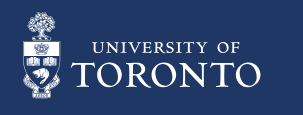The University of Toronto has quietly published the results of an inquiry into the Canadian National Breast Screening Study that began in 2022 and, it seems, concluded in March 2024.
The panel, tasked with evaluating new allegations about the trial’s randomization, found the evidence it reviewed did not affect the results of the trials, which called into question the value of mammography in women ages 40-59.
Imaging scientist Martin Yaffe of the University of Toronto has long been a critic of the CNBSS, a pair of randomized clinical trials of mammography conducted in the 1980s. In April, we published a guest post in which Yaffe detailed the history of the trial and his critiques of it, as well as new evidence that clinical staff may have unwittingly influenced randomization. He reported this to the Canadian Cancer Society in 2021, and to the university.
According to Yaffe’s timeline, the university convened an external panel in June 2022 to review this evidence. After being interviewed by the panel, Yaffe was told the review would be complete in March 2024. But the university did not release a report at that time, and “We have heard nothing since,” Yaffe wrote in the April 2025 post.
Last week, the university published the March 2024 report, written by panel chair Mette Kalager of the University of Oslo. It details the group’s process and findings, and redacts names of several of the witnesses and omits interview transcripts. The 275-page report has a single-sentence conclusion: “The new information does not have a credible scientific impact on the reliability of the CNBSS.”
The other two committee members did not sign on to that report. “We are unable to endorse it in its current form,” Isabelle Boutron of the Université Paris Cité and Peter Jüni of the University of Oxford wrote in a separate statement dated June 20, 2025. But the panel members came to a similar conclusion as Kalager, stating the evidence put forth in the complaint “could have had only a trivial effect on the study findings.”
The report and statement appeared last week on an undated page on the university’s website. In response to questions on why the University of Toronto didn’t release the report in March 2024, and when the reports were actually made public, a spokesperson told us:
We posted the materials from the expert review panel on July 17, 2025, once we received the full reporting of the panel, and informed participants who were interviewed. The university appreciates the thoughtful process used by the panel to report its outcome. The members of the panel reached similar conclusions.
The final materials of the expert review panel are now public, and the panel’s service has concluded. Peer-reviewed journals provide an important scholarly forum that is available for discussion of cancer screening.
Kalager, Boutron and Jüni did not immediately respond to requests for comment.
Yaffe said he plans to write a rebuttal to the review. “The sense I get in reading it is that [it] is more of an attempt to defend this trial than to impartially review the two main concerns: subversion of randomization and inclusion of women with already known symptoms in the trial,” he told Retraction Watch.
Like Retraction Watch? You can make a tax-deductible contribution to support our work, follow us on X or Bluesky, like us on Facebook, follow us on LinkedIn, add us to your RSS reader, or subscribe to our daily digest. If you find a retraction that’s not in our database, you can let us know here. For comments or feedback, email us at [email protected].
